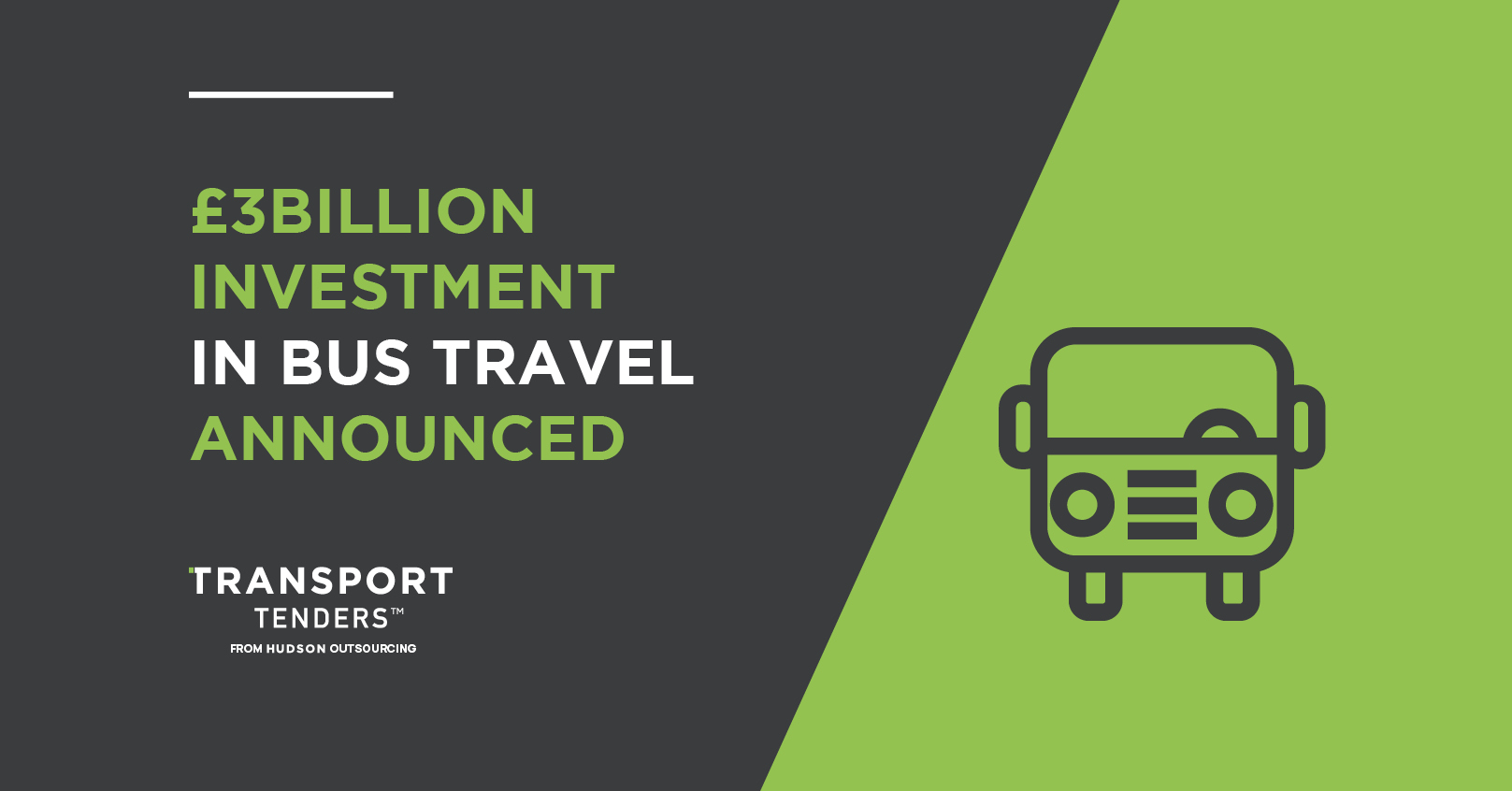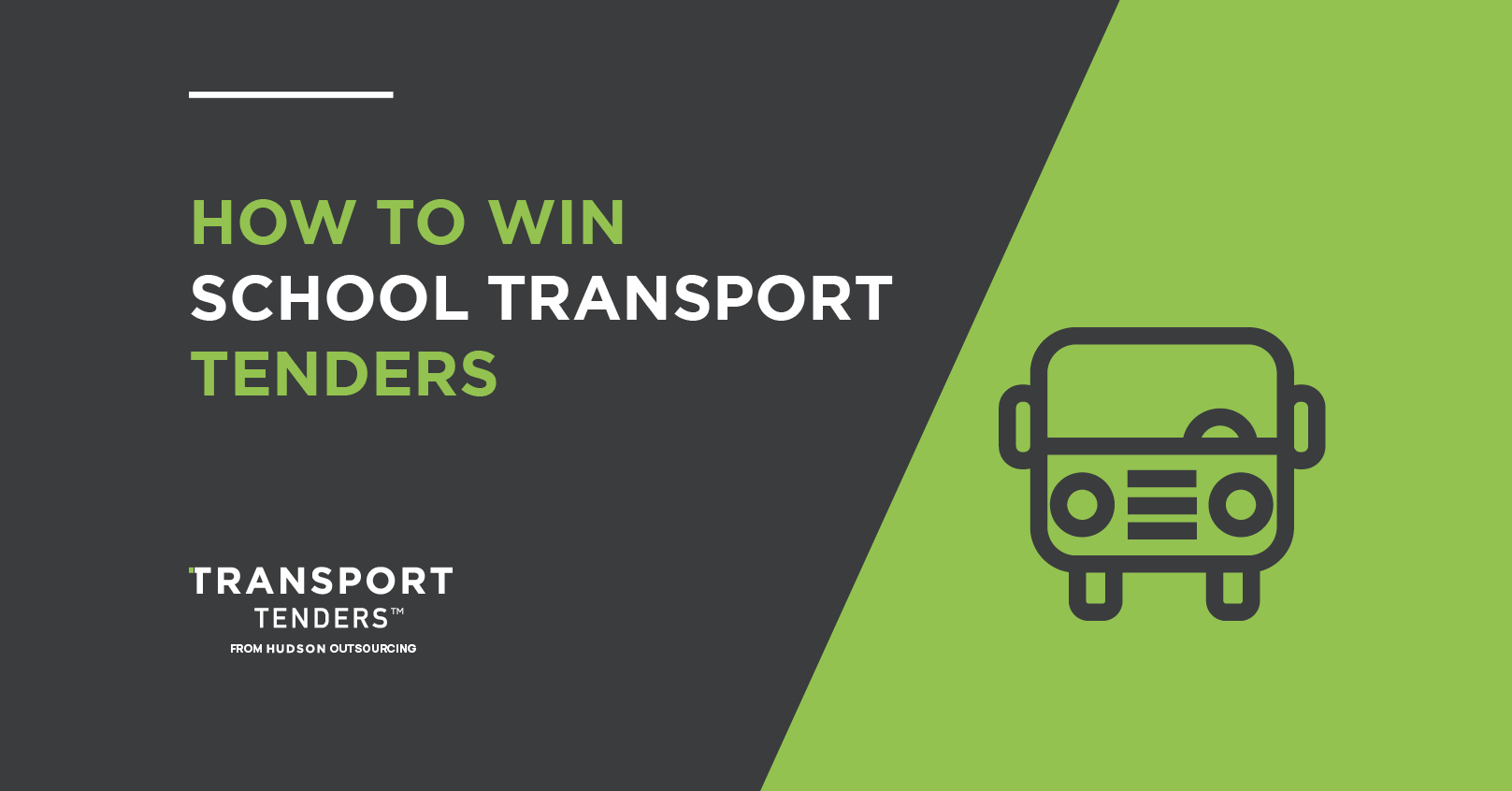Bidding for school transport contracts – An insight into School Transport Tenders
school transport contracts are perhaps little-known outputs of Local Authorities, who have ultimate responsibility for procuring, organising and managing this type of provision. Needs will differ between areas and the release of tenders may be sporadic. This might be because contracts run for longer periods of time, or because requirements vary on an irregular basis.
Normally, school transport contracts will be covering the whole area that the procuring council is responsible for, unless the requirements state otherwise. The ‘service users’ – that is, the young people and children you’ll be transporting to school may have special needs or be economically disadvantaged. Either way, the council must find a way to get them to school and/or engaged with community or extra-curricular educational activities. That’s where the opportunities for you come into play.
But how do you keep an eye out for these transport tenders while running your business?
Transport Tenders
A subscription to Transport Tenders could increase your chances of securing school transport contracts. With time saved and numerous opportunities found, Transport Tenders can feed seamlessly into your business development strategy. With a subscription to the portal, you receive:
- Unlimited access.
- A dedicated Account Manager.
- A free 20-minute phone consultation.
- A daily email bulletin.
This way, you can save your precious time and focus on the more pressing matters on your plate.
And once you’ve found an opportunity, what next? Read on to find out more.
The bidding process
Depending on the scope and requirements of the provision, several contract formats might be used. These could be:
- DPS registers. These often run for several years at a time. This could be to an ongoing need for provision – so buyers can add suppliers as soon as they’ve been approved. Alternatively, the scope could be so large that a DPS is the best way to meet demand. You can re-apply for a DPS if you’re unsuccessful on your first attempt.
- Framework agreements. Less common than DPS registers, but a similar format. Multiple suppliers are added to the agreement and can then bid for work as and when it arises. The difference from a DPS? A shorter deadline. Get your response sorted and submitted because these have deadlines similar to single supplier contracts.
- Single supplier contracts. For example, if one school needs to transport a couple of students to one specific place on a regular basis and it’s not currently using council services. They’re obviously not going to need a wealth of suppliers at their disposal – just the best one will do. They can award the contract to the most economically advantageous tenderer.
The tendering process may differ from council to council. For some, it may be as simple as completing a Pre-Qualification Questionnaire (PQQ).
For others, there may be a Pre-Qualification stage that must be passed first before proceeding to an Invitation to Tender stage.
Or you may have to complete a PQQ as well as quality questions and a pricing document.
In any of these stages, you may have to provide evidence of your licence to operate as a taxi service.
The specification
Tenders for school taxi contracts will contain a specification. This will most likely include details of fleet requirements – e.g., vehicle capacities and models.
It will also mention expectations for the service: geographical area, frequencies, number of children/households covered by the provision.
Crucially, you should take these into account when creating a service delivery plan and creating your responses.
Quality questions
Buyers of school transport contracts will want to know your approach to the following, which will therefore most likely be covered in the quality questions:
There are various factors which could impact on your ability to consistently and reliably deliver the service. For example:
- Inclement weather.
- Vehicle breakdowns.
- Car accidents.
- Traffic jams.
- Staff shortages.
While these might sound out of your control, you can actually put measures in place to reduce the likelihood and/or impact of their occurrence. Staying 2 weeks ahead with weather forecasting and planning appropriately. Implementing a maximum mileage on vehicles to minimise mechanical issues. Have a bank of contingency staff. Book cars in for regular services and have drivers do a daily once over.
Small actions which can make a big difference to your service provision. Councils will want to see that you’ve thought both practically and inventively about how you can make your service reliable.
How can you ensure that you can provide an error-free, professional service on every trip? Well, here are some ideas for you if you’re stumped:
- Carry out dummy runs. Find the quickest, most efficient route before it matters. This not only improves efficiency but enables drivers to become familiar with as many routes as possible.
- Give your drivers proper breaks so that they’re fresh and able to deliver the service at their best.
- Put GPS trackers in vehicles so that managers can spot-check performance.
- Conduct random audits.
Have a think about how you’ll make sure quality is championed if you are successful. It will be important for buyers to be confident you can get on with the job and do it well.
-
Environmental commitments
Evidently, providing a taxi service has environmental impacts. So, a buyer will want to know how you intend to combat this. This could mean committing to an entirely electric fleet by a certain year and reducing emissions year on year by phasing out petrol cars. Training staff to ensure they are aware of environmental commitments and of best practice driving techniques.
You will need to be explicitly environmentally conscious to win over public buyers. State specific goals and your deadlines for achieving them.
school transport Tenders comprise inherently community-based work. Buyers will probably be looking for ways in which you can add value to the communities in which you work. This could be attending community events or events such as school careers fairs or providing added value services (like free rides for specified purposes).
Social value isn’t necessarily confined to the service users with whom you work. For example, you could liaise with local domiciliary care providers and offer a once weekly drop-off of a click and collect shop. Or you could facilitate elderly individuals’ attendance at targeted community events to reduce loneliness and isolation.
Be creative here! If you can think of something to commit to, mention it. And be specific – state how often you can do something or how many drivers you can assign to an added value service.
As well as impressing the buyer, you’ll also be making a difference to communities while delivering school transport Tenders. Sounds like a win-win.
This area could see your responses covering:
- Training – like manual handling for wheelchair users.
- How you ensure the health and safety of your drivers – like frequent breaks.
- How you ensure the health and safety of your passengers – like careful driving and any procedures in place.
- Your risk assessment methodology.
- Any policies you have in place.
- Equality and diversity.
This would be in terms of how user friendly your vehicles and drivers are. Could they accommodate wheelchair users? Deaf or blind children? The Council needs to know that your services are accessible for anyone and everyone to ensure that the same opportunities are available for all children.
It goes without saying that delivering school taxi contracts requires an emphasis on safeguarding. Service users will be children under the age of 18, some of whom may be more vulnerable due to other factors.
Buyers will likely want to know:
- What safeguarding policies/procedures/training are in place.
- Details of a safe recruitment process.
- How you report/record safeguarding incidents.
What makes your drivers qualified to deliver the services? Are they DBS checked? Do they have a clean driving licence? Who will be the single point of contact? Do they have enough experience to coordinate a contract like the one you’re bidding for?
These are the kind of questions you should reflect on when tendering for school transport Tenders. And you should definitely cover them in your responses.
A useful thing to remember when responding to tenders for school transport contracts is that experience bears weight. Back up the points you make with examples of where it’s been done before on similar contracts.
After each point, think of the questions:
- Where have we done it before?
- Why is it good?
This approach will demonstrate to the buyer that you are capable of doing it again for them and that it is worthwhile.
If you’d like to see how Transport Tenders could help your business today find more school transport contracts, get in touch with Hudson Discover today to view all the latest government tenders. We can offer you a free live demo of the portal or a free trial. Let us help you – take advantage of this unique time-saving tool.
Below are previous school transport contracts sourced on our portal:
Hagley Catholic High School Transport Tender
Hagley Catholic High School- West Midlands- Budget: £730,000
Provision of Home to School transport between Kendal and Windermere (T6401) Updated
Cumbria County Council- North West- Budget: £30,000
Rutland County Council Tender for Home to School Transport Routes 2020
Rutland County Council- East Midlands- Budget: £812,000
Home to School Transport Service by Buses and Minibuses for Bridgend County Borough Council
Bridgend County Borough Council- Wales- Budget: £23,000,000
Provision of School Bus Services
South Yorkshire Passenger Transport Executive- Yorkshire & Humber- Budget: £55,200
Found a school taxi contract you want to bid for? Contact our expert bid consultants at our sister company, Hudson Succeed. With five support package options, pick the option most convenient for your business and let our bid writers take care of the rest. We’re here to help you succeed.
Remember to subscribe to our Weekly Transport Business leads newsletter to receive all the latest transport contract opportunities from around the UK including:
School Taxi Contracts
Bus Tenders
& general Transport Contracts

